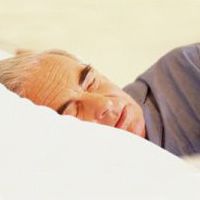Article
Study Examines Links Between Osteoarthritis, Sleep, and Depression
For patients diagnosed with osteoarthritis, daily activities that many people take for granted, including sleep, can be interrupted or difficult, often causing psychological challenges as well.

For patients diagnosed with osteoarthritis (OA), daily activities that many people take for granted, including sleep, can be interrupted or difficult, often causing psychological challenges as well.
Study results published in Arthritis Care & Research by the American College of Rheumatology show that patients with osteoarthritis who have their sleep cycles disturbed are also likely to suffer from some form of depression. The study consisted of 288 patients who had been diagnosed with osteoarthritis in their knees who were checked for “sleep disturbances, pain, functional limitations, and depressive symptoms,” the abstract noted. They were then given a second evaluation a year later.
“Sleep disturbance is a common complaint among those with pain, particularly among those with OA,” said Patricia Parmelee, MD, of the Center for Mental Health & Aging at the University of Alabama in Tuscaloosa in a press release. “Our research is unique as we investigate the complex relationships among sleep, OA-related pain, disability and depressed mood simultaneously in a single study.”
The researchers determined that while a patient’s ability to sleep was linked to their pain levels and depression it was not connected to their disability. “The sleep-pain relationship was mediated by depressive symptoms; sleep interacted with pain to exacerbate depression among persons with high levels of pain,” the abstract continued. “Baseline disturbance predicted increased depression and disability, but not pain at follow-up.”
“This study shows that depression plays a strong role in the sleep-pain connection, particularly with severe pain,” Parmalee added. “Further investigation of sleep in disability progression may lead to new interventions that disrupt the cycle of OA distress.”




